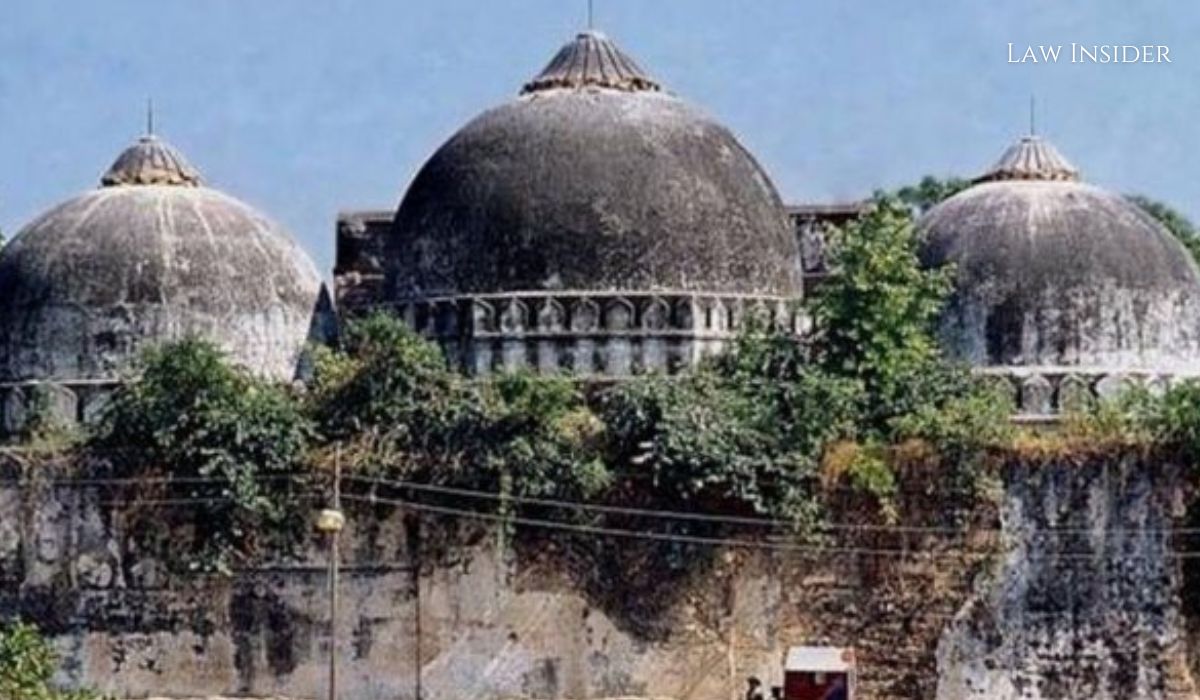Tanisha Rana
Published on: August 31, 2022 at 21:47 IST
The Babri Masjid demolition-related contempt case against the State of Uttar Pradesh and others was concluded by the Supreme Court on Tuesday. The court stated that the case had become moot in light of the Constitution Bench’s 2019 ruling.
The plea “had become infructuous in view of the Supreme Court’s 2019 order, ‘passage of time’, and the fact that petitioner Mohammad Aslam Bhure had gone away,” according to a bench of Justices Sanjay Kishan Kaul, Abhay S. Oka, and Vikram Nath, before whom the issue was placed.
Bhure passed away in 2010, and the Supreme Court stated that the contempt petition could have ideally been posted sooner.
M.M. Kashyap, the attorney for Bhure, proposed that an amicus curiae be appointed to continue the proceedings.
Justice Kaul said: “You cannot keep whipping a dead horse! We are now making endeavours to take up old matters…. Some issues may survive, some issues may not survive for consideration.”
The bench added: “The contempt petition is closed.”
The Supreme Court bench agreed with Kashyap that the case should have been listed earlier than 2010, as Bhure had submitted many pleas for an early listing.
“I appreciate the fact that the matter ought to have come up earlier. I appreciate your concern. But then nothing survives in the matter,” the bench said.
A five-judge constitution panel had maintained the Hindus’ right to construct a Ram temple at the contentious Ayodhya location on November 9, 2019.
The Babri Masjid’s demolition on December 6, 1992, and “obliteration of the Islamic building constituted an egregious breach of the rule of law,” according to the judgement.
A 2010 decision by the Allahabad High Court that divided the contested site into three equal pieces and gave the Nirmohi Akhara, Ram Lalla Virajman (represented by a VHP leader), and the Sunni Central Wakf Board equal parts was overturned by the five-judge panel in a 1,045-page ruling.
However, because the constitution bench was primarily focused on the title issue argument, it did not address the contempt petitions brought by Bhure in 1992.
For failing to uphold the solemn assurance given by the state government to the Supreme Court days before the demolition, Bhure had filed the petition seeking prosecution for contempt against BJP leaders L.K. Advani, Murli Manohar Joshi, Vinay Katiyar, Uma Bharti, and then-Uttar Pradesh chief minister Kalyan Singh (who passed away on August 21, 2021).
In Delhi’s Daryaganj, Bhure worked as a bicycle mechanic. Residents of Ayodhya said that he often visited the city in 1991 and expressed concern that the Babri Masjid will be destroyed if the Kalyan Singh government at the time continued to permit people to congregate close to the mosque.
Veteran attorneys said Bhure had submitted the petition outlining his fears in 1991 beforehand, prior to the destruction. Eventually, the Kalyan Singh administration submitted an affidavit to the Supreme Court asserting that law and order will be upheld.
Bhure’s request was turned into a contempt petition following the destruction.
Bhure said in the beginning of 2010 that his family members disapproved of him since he had liquidated his business to pursue the legal battle. When he filed the petition, three of his five kids were enrolled in school.
Bhure passed away two days after the Allahabad High Court’s decision on September 30, 2010, to divide the contentious Ayodhya property into three equal portions.
The Muslim side’s attorney, Jafaryab Zilani, said: “Bhure was an iron man.”

